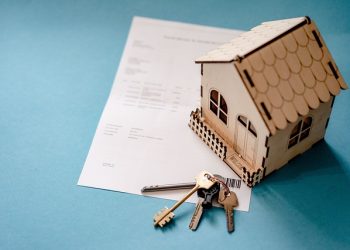Real estate investment is among today’s best investments. As constructing this asset requires a sizable sum, making a bad real estate investment decision might hurt your financial stability. So, it’s crucial to exercise caution during the entire process of purchasing a house.
To assist you,
The following is a comprehensive house buyer’s checklist that includes all the elements you need to take into account to make an informed property purchase decision:
Let’s first look at geography-related things.
The Location
The location of your home cannot be changed. As a result, when searching for a house, consider the distance from your place of employment, the house’s location on the lot, accessibility, noise levels from the neighbors, and traffic. Think about how easily you can access the area’s parks, shops, schools, and public transportation.
According to RWinvest’s ranking of the best places to invest in UK property, maintaining a balance of strong economic growth and high rental yields is vital for a location to become an investment hotspot. Manchester, for example, has maintained a longstanding reputation of being an investment hotspot, with the city consistently boasting strong growth rates and consistently higher rental yields. In fact, as of 2023, the average home price in the city has increased to £256,330.
The site
Beyond location, consider the home’s site. Does the house have a view, a walkout basement, or a lot of steps to climb if it is on a hill?
Are the windows of the neighbors able to see inside the house? Can children, animals, or other people use the yard? Is reaching the property via the driveway or front door stairs safe? Consider how your accessibility requirements may alter as you age if you intend to stay in the house for a long time.
Carpet Area of the Property
Avoid being seduced by the per-square-foot bait developers frequently use to entice buyers. To improve the area per square foot, builders frequently incorporate the building costs for the lobby, shafts, elevator space, wall thickness, staircase, etc., in their pricing.
“super built-up area” refers to this inflated specification, typically 30% of the home’s real useable space or carpet area. Check the dimensions of your living room, bedroom, bathroom, kitchen, or balcony in the building plan to determine the actual space size you will use. Based on this information, you can decide and negotiate a favorable price with the developer.
Secondly, About the builders-related things
Builder Reputation
Regrettably, there are a lot of builders out there who make untrue claims. So, before finalizing the purchase, conducting a complete background check is crucial to learn about the builder’s reputation.
It is always advised to choose a builder with a solid reputation in the community.
For the best real estate advice and property in Florida with a respected reputation, visit https://gatorrated.com. They are known for their transparency and professionalism with no upfront costs or fees.
Construction Quality
It is essential to evaluate the quality of the building’s construction, whether you are buying a flat from an independent builder or one that is a member of a residential community.
Although many builders create houses with appealing exteriors, the materials they use to build them are of inferior quality. Avoid being duped by such designs.
Third, things you need to look at the house
Water Damage and Mold
Improper water leaks or damage, particularly in basements, can result in various difficulties, like structural problems, rot, and mold. Watch out for the house’s musty odors and water spots on the walls, ceilings, or flooring. As mold is a health risk, you should treat it before moving in. Nevertheless, you should also identify the source of the moisture to stop more infestations.
Windows and Lighting
Views from the windows should be examined, as should how much light they let in. Consider the views and illumination from the windows in the rooms where you will spend most of your daylight hours. You don’t want to use an artificial light source or spend the entire day staring at the side of your neighbor’s house because your room is too dark.
Take note of each room’s built-in outlets and light fixtures as well. Although artificial lighting and outlets can be added later, having those things ready when you move in is excellent.
Heating, Ventilation And Air Conditioning (HVAC) Systems
You probably aren’t an expert at assessing the state of a home’s heating and cooling systems unless you work in the HVAC sector. There are a few fundamental inquiries concerning daily life that you should make:
- What type of heating is there in the house?
- Is there central air conditioning in the house, or do the existing owners use window units?
- When were the heating and cooling systems installed?
Outlets and Appliances
Be sure the appliances in the house you’re interested in are in working order if they are included in the sale. This applies to microwaves, washers, and dryers. Also, you should confirm that all of the household outlets are functional.
Check the Resale Value
This is yet another critical item to cross off your house-buying checklist. If you purchase the house for investment purposes rather than to live in and have plans to sell it, you must pay close attention to the resale value.
Red Flags to Be Aware Of
So let’s review the critical warning signs to watch out for. Being particularly cautious when purchasing a house.
- An outdated or broken roof
- Broken sinks, showers, or toilets
- Blockages in the sewer lines
- Leaks that result in water damage
- Noisy, raucous neighborhood (or neighbors)
- Cracked, buckling, or sagging foundation
- Faulty appliances
Bottomline
Every home you choose will ultimately have advantages and disadvantages. You must decide what elements you cannot live without, what you cannot live with, and what elements you are ready to give up.
Keep in mind that every house will have flaws of some sort. Even the house of your dreams can require a new roof, bathroom renovations, or appliances.
As no single property will meet all your needs and wants, the objective is to choose a home that does most of them.
Additionally, check out The Benefits of Working With a Real Estate Agent for your next home if you’re still debating hiring a realtor. You can learn how real estate agents can guide you through documents, legal processes, market insights, etc.







